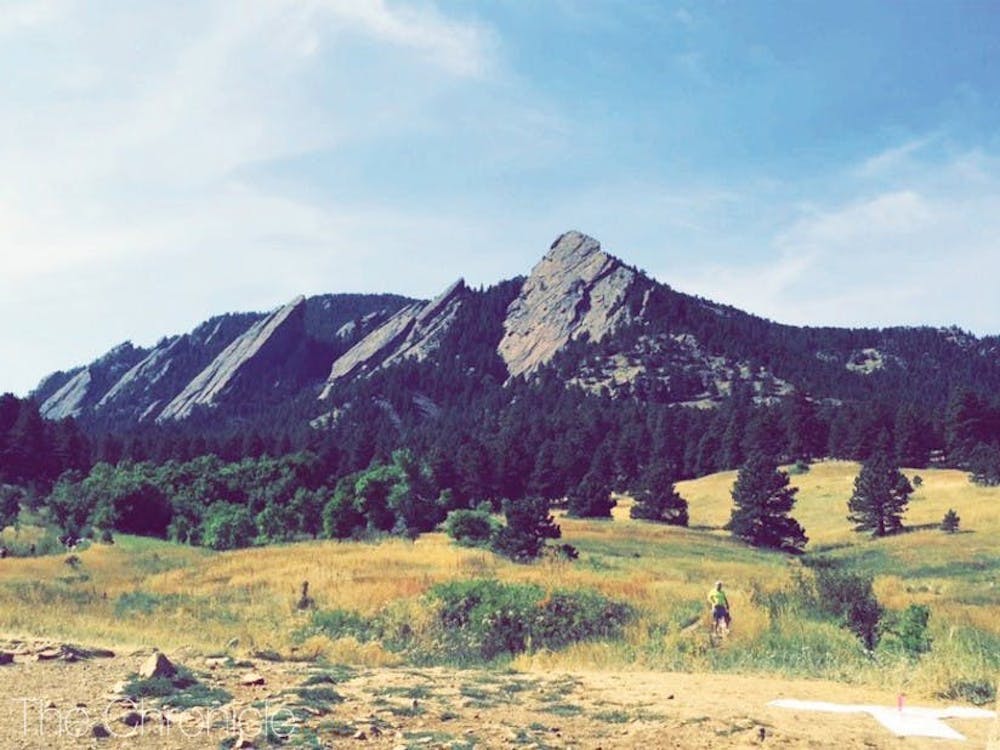In a time of ecological crisis, one Duke professor has been tapped as part of a newly formed group to fight it.
James Clark, Nicholas professor of environmental science and professor of statistical science, recently packed his bags and made his way to France. There, he is one of 43 scientists and social scientists working on the Make Our Planet Great Again Initiative (MOPGA).
The program—created in response to French President Emmanuel Macron’s call to action after the United States withdrew from the Paris Climate Accords in 2017—draws biodiversity scientists and Earth systems experts trying to answer important environmental questions to French and German labs.
The MOPGA initiative’s larger goal is to use the scientific data collected by selected international scientists like Clark to aid in climate change mitigation strategy and policymaking.
“Most of us want to see the preservation of natural communities because of the importance of habitats for human welfare and the sorts of services they provide us with clean air, clean water, storing carbon and the spiritual renewal that’s important to so many people,” Clark said.
Although some of these services are intangible and lack the economic incentives that tend to drive political conversations, Clark cited the inherent desire for these sorts of ecosystem services as a major talking point when engaging with politicians on climate change issues.
He also highlighted MOPGA’s relationship with the Nature Conservancy and its outreach center, which would allow researchers to share their collected data with the public, outside of scientific and political spheres.
By creating models and data that are easily accessible and relevant to the Nature Conservancy’s mission, Clark said that he and his MOPGA team hope that their data will be shared with public sectors. He added that with time, the MOPGA website could act as a repository for readily available scientific data for the public, regardless of education level.
Chris Kilner, a third-year doctoral student working in Clark’s lab, said that the generalized joint attribute model—created by Clark—helped get him chosen for MOPGA, where he is building off this model. GJAM looks at how climate change will impact a given species, such as a tree, and how that movement affects all other species, such as the birds that rely on that tree for food.
“Where previous biodiversity models focused on one species or one group of species, this model incorporates the interaction between different species combined,” Kilner said.
Kilner pointed out that one of the biggest drivers of terrestrial ecosystems around the world are trees and forests. Many different species rely on forests for food, shelter and resources like seeds. This has led Clark and his lab to study mast data, or the fruits and seeds that species rely on for food.
By studying how climate shifts impact mast distributions, he said that the lab hopes to better understand how different bird and small mammal species distributions will also shift.
“Now we’re not just looking at climate to model how climate change will affect species in the future, but we’re also taking how climate change will affect forests and seed production and how that combined with an overall change in climate will affect species in the future,” Kilner said.
He added that accessibility, storytelling and community engagement are the key to getting people to care about climate change and biodiversity loss as an issue.
“There’s only two ways that policy change seems to happen,” he said. “One is money, and scientists will never have the money to throw at these problems. The second is to get the public to care about it. It has to be tangible”
Clark noted that MOPGA is moving beyond France. Despite the current U.S. presidential administration’s push away from environmental protection, Clark believes that people shouldn’t despair and that the movement against climate change is an ever-growing fight.
“There’s enough concern around the globe that it probably won’t stop here,” he said, “More and more people are understanding that these environmental issues have no boundaries; their so severe and so shared.”
With the U.S. presidential election coming up, Clark also emphasized the importance of voting for representatives committed to protecting the planet.
“I think that this kind of effort can grow,” he said.“There’s a lot of support for environmentalism in the United States, and the most important thing of all is to support leaders who have a plan for climate change.”
Get The Chronicle straight to your inbox
Sign up for our weekly newsletter. Cancel at any time.

